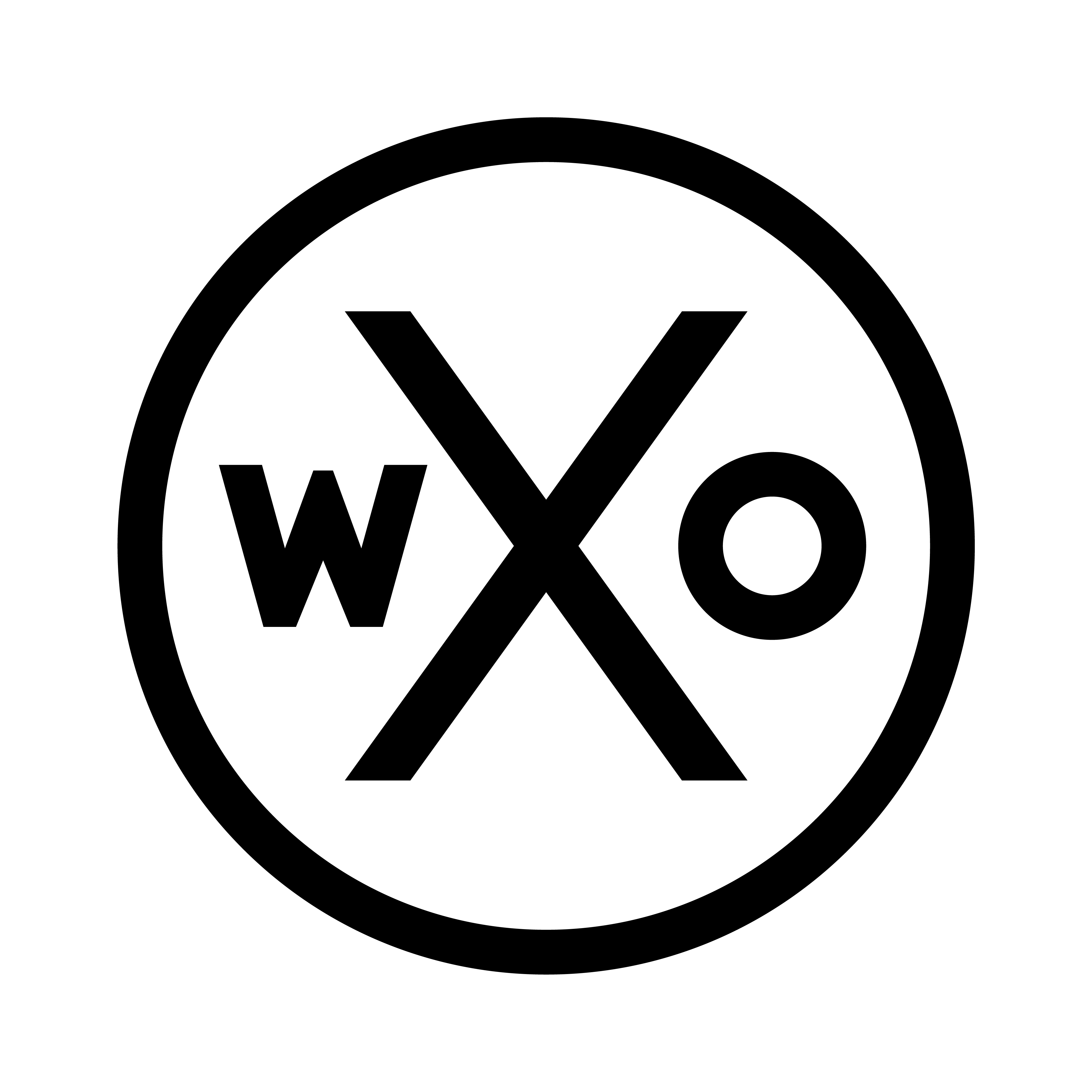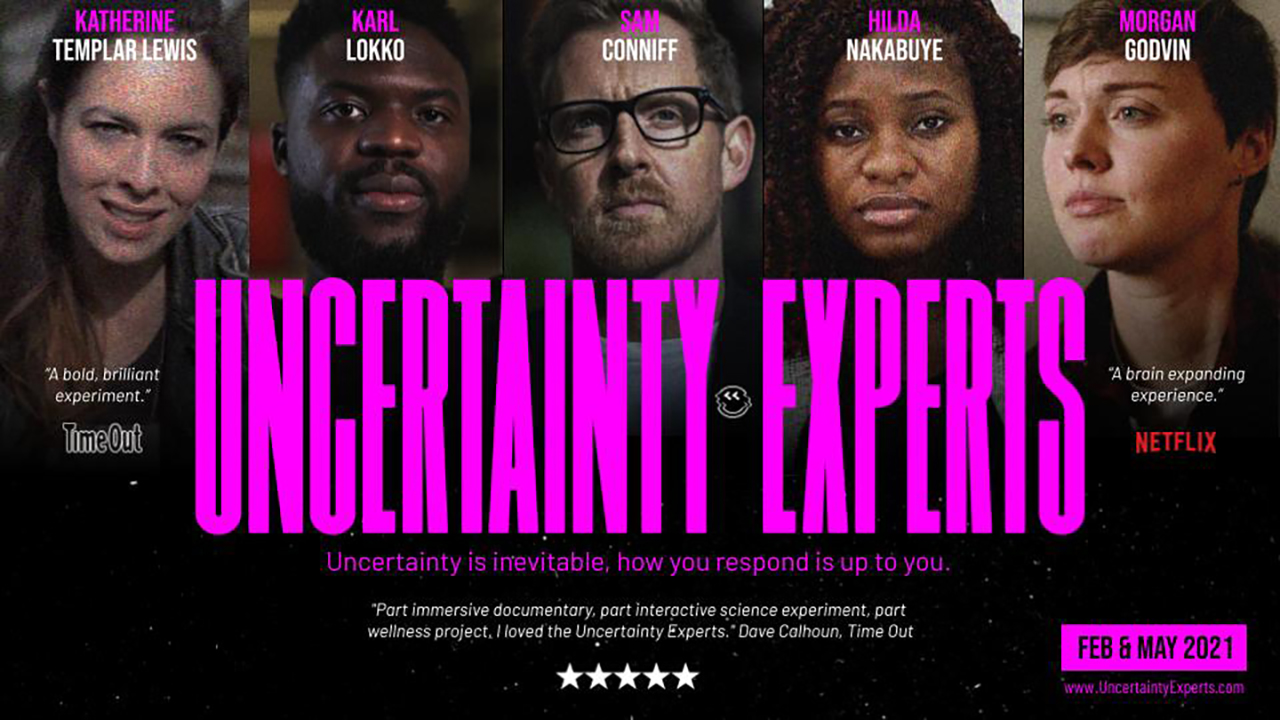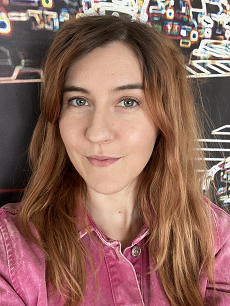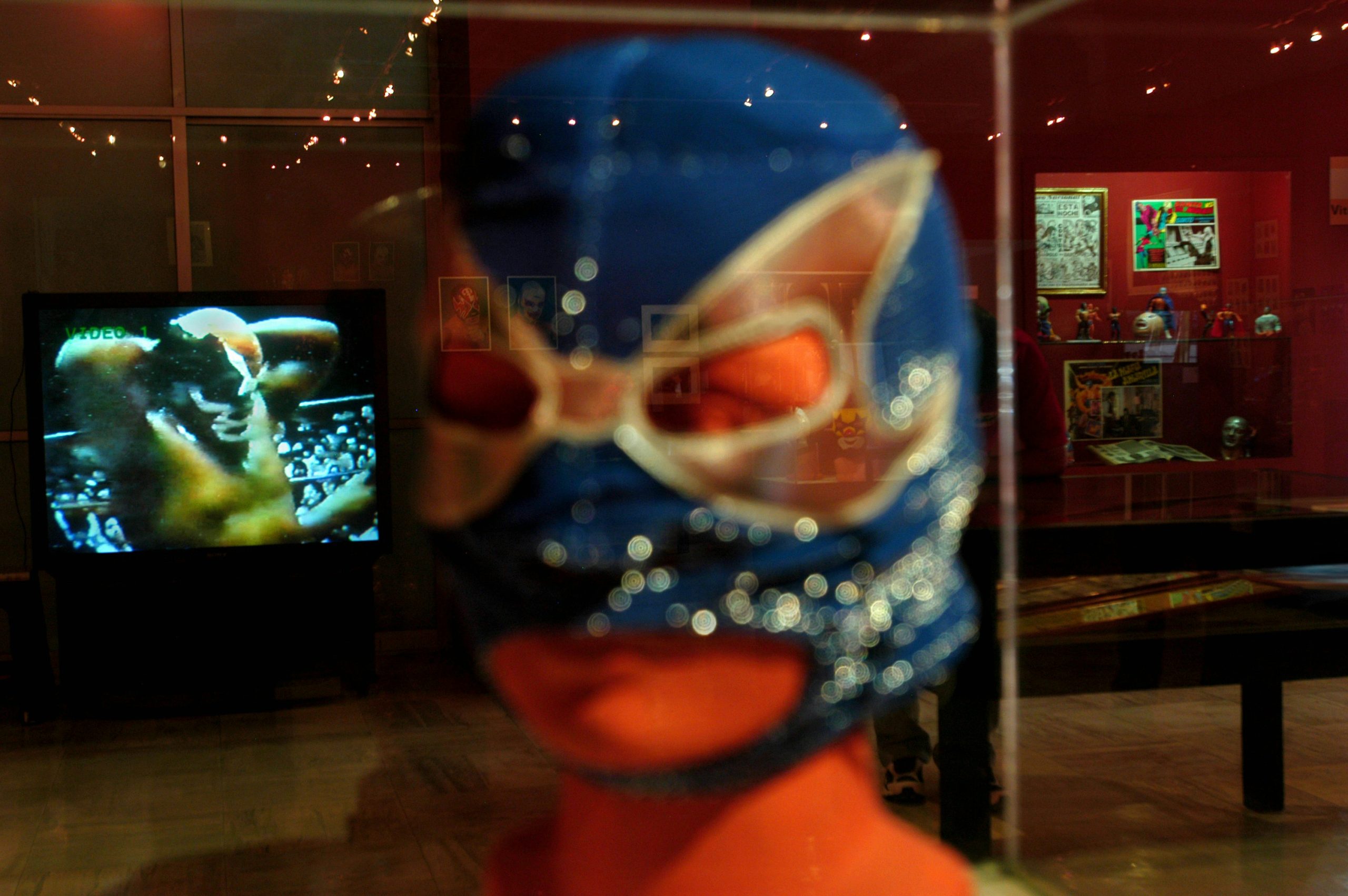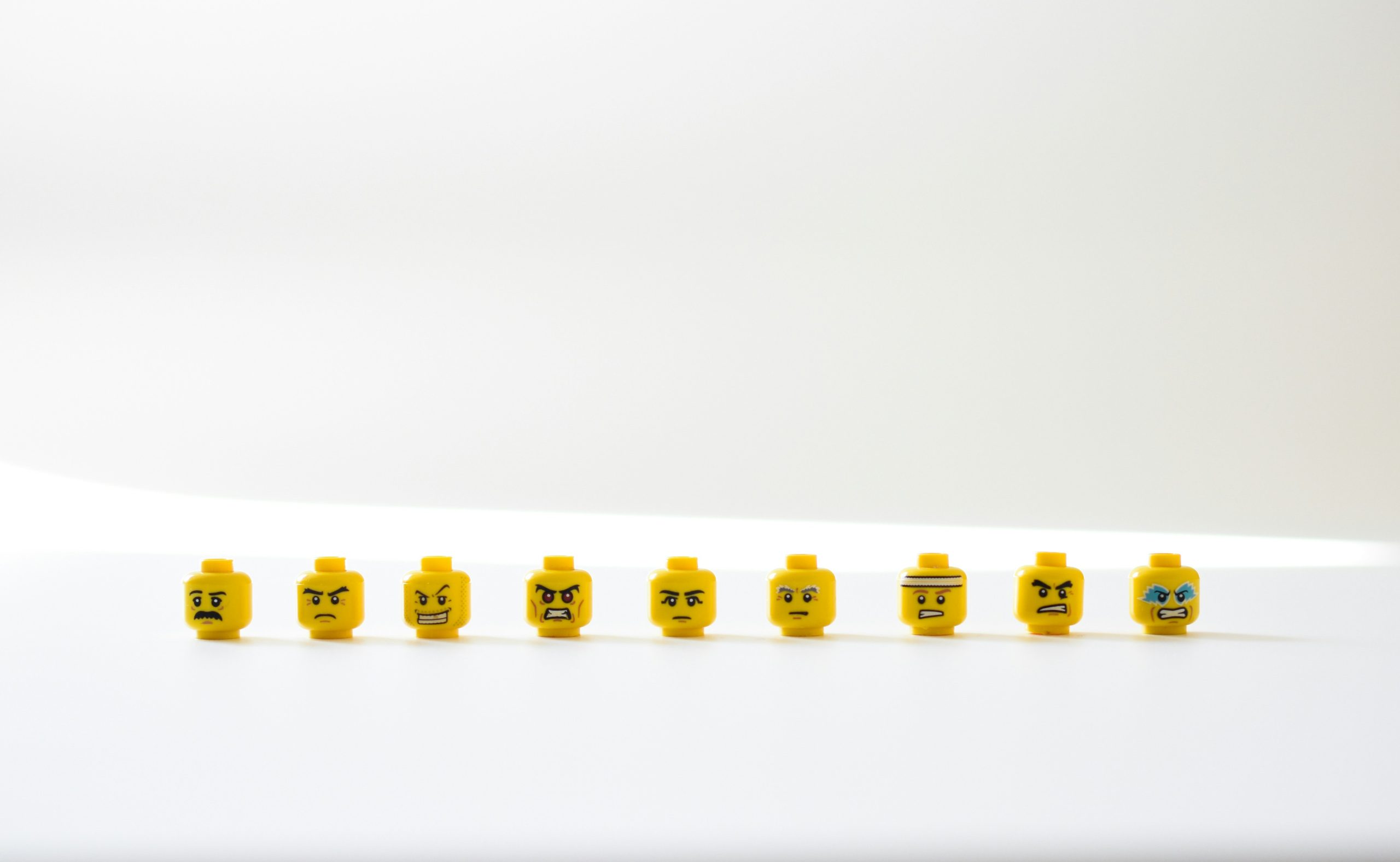In an increasingly uncertain world, wouldn’t you love to know how to master uncertainty – and even turn it into opportunity?
The Uncertainty Experts is an interactive, three-part documentary series built on University College London research that’s part education, part entertainment, and all impact.
Acccording to them, uncertainty is one of the key issues of our modern lives. (And according to this BBC article, Why we’re so terrified of the unknown, by science journalist David Robson, uncertainty is at least scary for all of us.)
However, by using the tools they’ve defined through scientific research, neuroscience, and interviews with “Uncertainty Experts” from all over the globe and different walks of life, we can turn what is usually seen as a negative force into something positive.
WXO CEO James Wallman, immersive experience creator Frances Vieras Blanc and WXO Editor Olivia Squire joined all three screenings of the documentary to put their claims to the test. Here’s what they made of it all.
James Wallman: “It gave me a set of mental agility tools that I can use as superpowers to help me upgrade my mental hardware.”
What’s good about the experience?
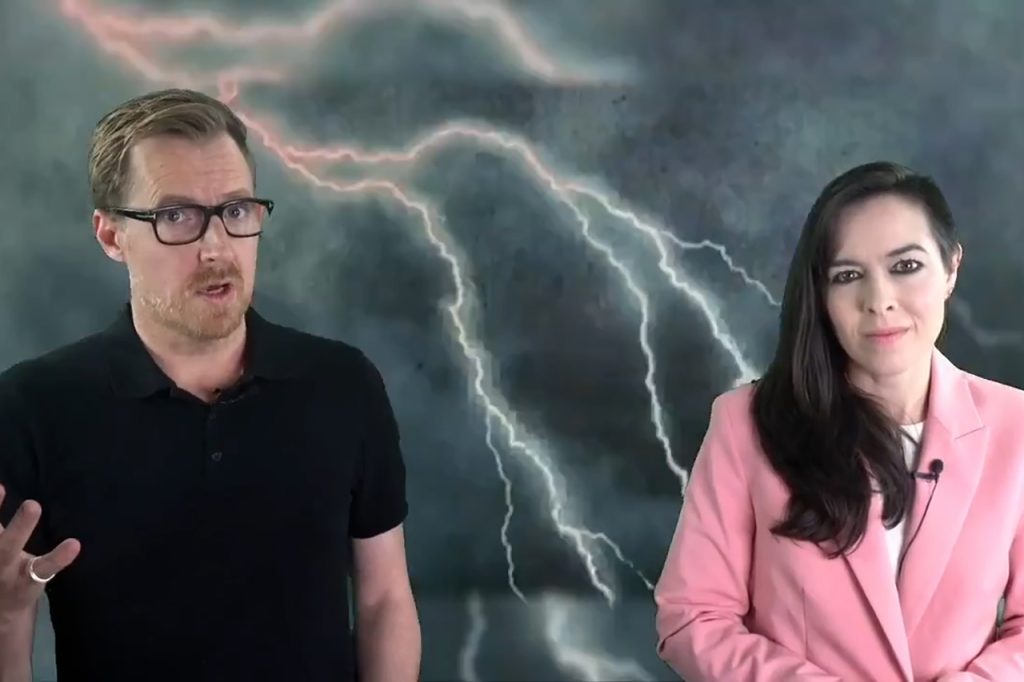
- It was an amazing, easy to access, interactive documentary that made a real impact and achieved what it set out to do in an entertaining and engaging way. The message was very clear, the presentation was brilliantly written and the learnings were packaged in a memorable way to help them stick.
- I love the fact that it was a collaborative experience, and there were lots of ways to hook attendees in through science, stories and games. There was a ‘you can do it too’ element entwined with the stories of these incredible, inspiring heroes who have overcome horrific experiences and turned their lives around.
- Complex topics like conviction narrative theory and meta cognition were brought to life through compelling stories that flitted between case study interviews and visually arresting graphic novels that resonated with me.
- The experience was very vivid and is still fresh in my mind two months on. At one point Katherine asked us to visualise the sensation of biting into a lemon. While the sessions were intense, there were lighter moments. I tuned in from my bed and was laughing at one point and sobbing the next – it was a real journey.
- I loved the fact that it paired science with entertainment, which gave it a greater impact. They’ve really done their research and it felt like we were part of a scientific experiment as the experts were gathering data from us throughout.
- I liked the international scope of the event, which took place three times a day so people all over the world could take part. I also enjoyed the interactive element, which made you feel like you were playing the game of your own personal journey. The fact that it takes place online gives it incredible scaling opportunities, making it a lucrative venture.
- When something is done well it can break through my skepticism, and the scientific foundation of the experience really impressed me. It showed me that I fall back to avoidance behaviours more than I should. These learnings from Sam Conniff and Katherine Templar Lewis complement Lisa Feldman Barrett‘s How Emotions Are Made and David Robson‘s The Expectation Effect.
What could be improved?
- It was quite raw, and they were open about that. More could have been done when it came to the follow up to help cement the key takeaways in your mind.
- The practical sound-bites were great, such as: ‘Imagine a future so vividly that it overcomes any present fear’, ‘turn fear into fuel’, ‘swap safety behaviours for coping strategies’, ‘put fear into future regret’ and ‘slowly walk into the deep end of your life’. They were quite bumper sticker-like, but there’s a power in that. A booklet of the key quotes would have been powerful and useful.
- I felt it slightly over-egged the importance of uncertainty at the beginning. Mentioning the World Uncertainty Index was a bit of a hard sell, as every era feels they’re living through the most uncertain times in history, which isn’t true. It may have been more effective to ask participants if they’d like to be bulletproof.
- I feel they missed a trick in not sending out simple short reminders of the key takeaways from the event sent as an email cascade. I’m not practicing what I’ve learnt from the experience as much as I should be.
Which elements do you like so much you’d like to use them in your work?
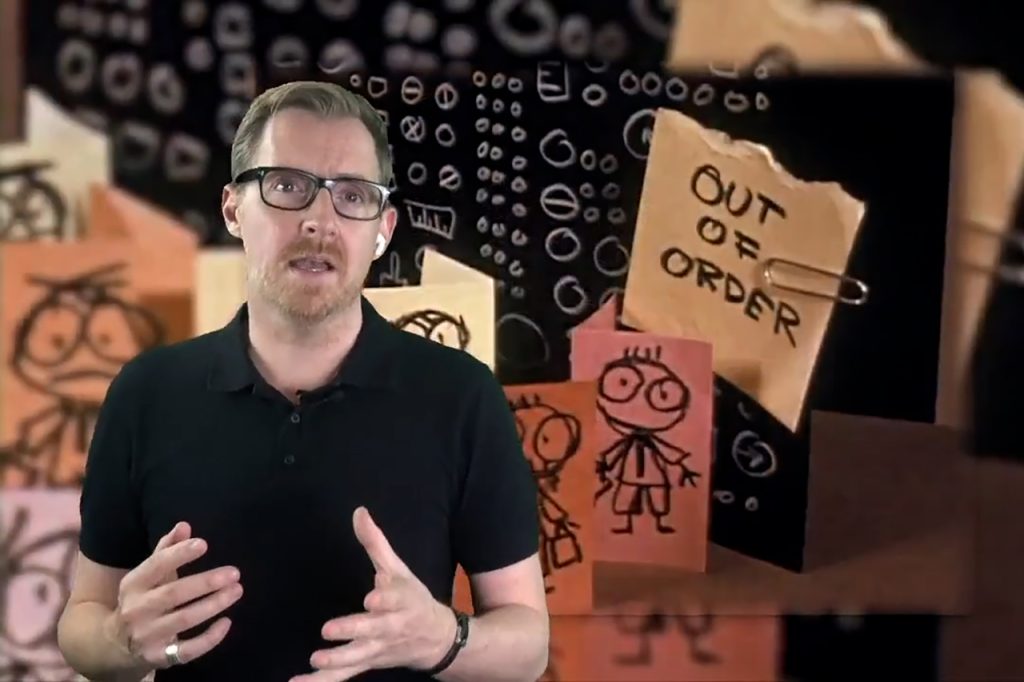
- I’ve given courses in my time, but never as interactive, engaging and revenue-generating as this one. It’s shown me the importance of working with scientists and leaning on scientific findings in order to have an impact on the world.
- This is the direction experience design should go in. Creators should be using science to make our industry more robust, so it’s taken more seriously. That way it will have more of an impact, will be more valuable and will make the world a better place.
- It made me approach gratitude in a fresh way. I’ve been working in the wellbeing arena for over a decade and I’ve never experienced gratitude to that extent – it took it to another level and proved that gratitude can be a super power.
Frances Vieras Blanc: “It empowered me with the tools to navigate these times with resilience and transformed my view on uncertainty.”
What’s good about the experience?
- Besides being a fascinating example of a live, interactive documentary and what is possible in that space, it was, above all, a much-needed therapy session. I looked forward to learning something new that I knew was going to help me grow as a person. There was also something comforting and powerful in knowing that I was not alone on the journey, that although I was indeed alone at my desk, there were many of us going through this experience communally, at a distance at the same time.
- The documentary was chock full of value: there was a large wealth of information and content offered in a very accessible way. The format allowed us to learn very profound scientific concepts in small, bite-sized doses.
- Every episode shared three main ideas that were supported by interviews and personal anecdotes as well as the scientific theory behind them and often, a companion experiment to do at home simultaneously. Post episode, more in-depth information became available for anyone looking to delve deeper into the subject matter. You could feel that the creators were very dedicated to sharing as much knowledge as possible with the participants.
- I liked that it was authentic. The fact that it was live allowed for all the bumps and hiccups of a live experience. This rendered the experience more endearing and human. Instead of being the hyper-polished, fast-paced content, we’re used to consuming, the Uncertainty Experts allowed for the information to breathe and for life to happen around it. There is a level of uncertainty that happens when doing a live event, which is fitting for the subject matter.
- I really enjoyed the interactive element and the personalisation of the content. With the pre and post-assessments, the QR code questionnaires, and the real-time experiments, the Uncertainty Experts wasn’t something to merely watch being played out on a screen, but rather something to be lived and experienced, step by step, on a personal level.
- Above all what I loved was the uplifting message of positivity expressed throughout the series. While it’s true that we live in highly uncertain times, the uncertainty doesn’t have to define us. The Uncertainty Experts series reminds us that we have the power to choose how we live these moments and empowers us with the knowledge and tools to navigate these times with awareness and resilience. For me, this was the most impactful part of the experience. It transformed my view on uncertainty.
What could be improved?
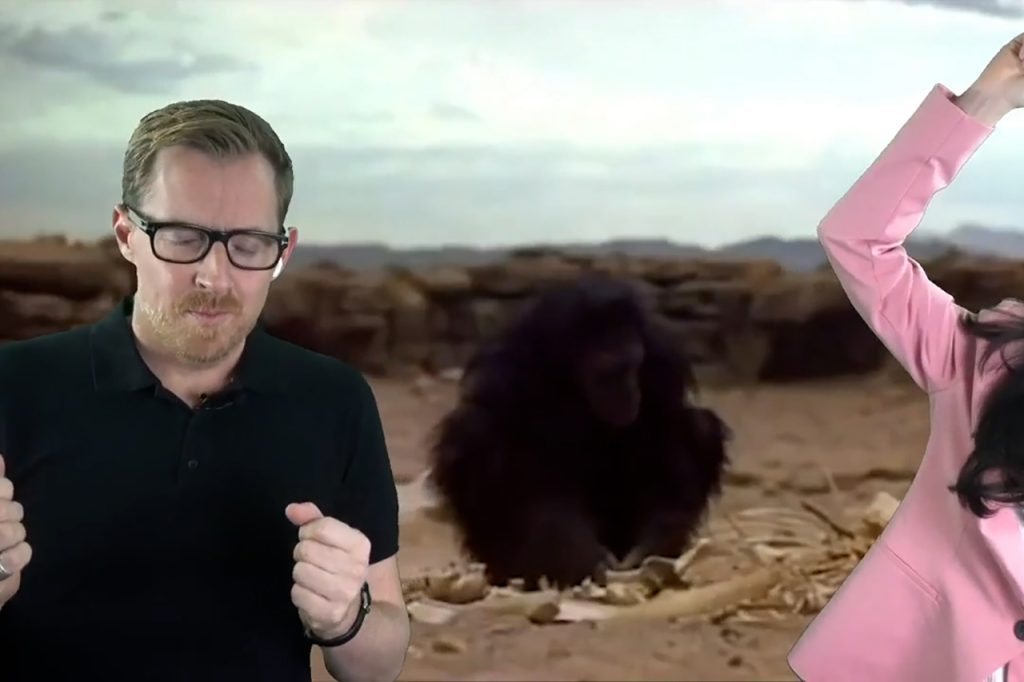
- While I appreciated the original score created by Morcheeba, I would be curious to see how much deeper the experience could get with a more cadenced or musical-style score. I found the music almost too one-dimensional and ‘sciency’, and missing some of the highs and lows that could help take the participant on a deeper journey. Music is a powerful experiential tool and is often under-appreciated in design. Just as music is regularly used in ritual work to help activate a trance state, I think it would be interesting to pair different types of music to the content to better guide the participants through the experience and create a deeper resonance with the subject matter.
- While it’s great to have the additional content available to read and watch, there’s nothing like experiencing something to really get it. I found the in-episode experiments to be instructive and engaging and would be interested in experimenting a little more. Perhaps the participants could be given a quick experiment to do in between the episodes. It could help make these concepts even more accessible, especially when we take them off-screen and into the real world. Being able to implement these newly learned theories on a daily basis will help bridge the gap between knowing and being.
- I really enjoyed the graphic novel aesthetic given to the experts interviewed and I think more could be done with that theme and technique. Using that medium gives the experts and the content a different feeling, almost superhero-like, which renders the content even more accessible – especially for those who are visual learners. It could be fun to have a recap of the scientific theories shared in an easy-to-read graphic novel style, like giving the participants the manual they need to become superheroes themselves.
Which elements do you like so much you’d like to use them in your work?
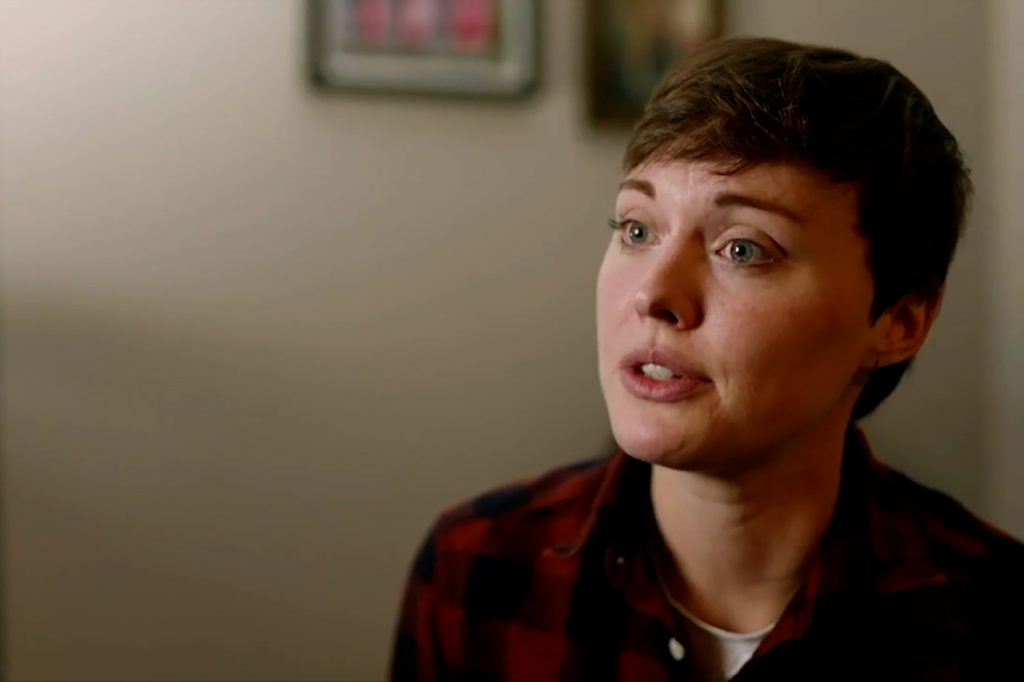
- What I appreciate of the design and would like to add more of in my work are its authenticity and accessibility. I think Uncertainty Experts did a great job in keeping it real and available for everyone to understand and enjoy. I think those are valuable tools in creating experiences that resonate with and impact audiences.
- What I appreciated about the content and am adding to my work was the idea of resilience. On the Uncertainty Experts website, they state that the series measurably improves three areas: creativity, productivity and resilience. And while I agree that all three areas were positively impacted, I think where I felt most transformed was in the area of resilience. The ability to bounce back, recover from or respond to change and crisis with ease and consciousness is crucial both personally and professionally. This is something that I have shared with my team and will continue to cultivate individually and collectively through the use of the tools that I learned with the Uncertainty Experts.
Olivia Squire: “The willingness to adapt and evolve made it feel like a truly live event.”
What’s good about the experience?
- I thought it was a great example of how to build anticipation for a live digital event. Normally, the prospect of staring at a screen after a day spent doing the same for work wouldn’t thrill me, but the countdowns and teaser trailers/emails in the weeks, days and minutes to going “live” really made me feel like I was part of something bigger than a Zoom meeting and I was excited to log on, particularly for the first episode.
- The “raw” nature of the communications made me feel like I was witnessing an experiment in motion, which drew me in – for example, by sharing Google Docs of emails between the creators in the lead-up, or hearing them talking before they went live. As an editor, I should have hated the number of typos throughout their comms – and it did cross my mind that they could have done with a copywriter! – but on reflection, by being given an insight into the mechanics of the experiment I felt more invested in its success, whether this was intentional or not. The small mess-ups made it feel more “real”.
- I thought the script was great – together with the retro-futuristic, Adam Curtis-style visuals, it felt like a tongue-in-cheek parody of the science videos you’d watch at school and got me in learning mode.
- I liked the “hacking” narrative used throughout of how to hijack your body and brain to feel more in control of uncertainty. It was practical, inspiring and gave me tips that I have actively used and reflected on in the weeks since. The simple scientific sections were easy to follow and had me taking notes, and even though some of the ideas were familiar from mindfulness, meditation, etc, they were presented in a compelling way that put them in a new context.
- The interactive element of the questions did keep me on my toes and gave me a record of how I was feeling throughout the series. However, it was the pre- and post-screening questionnaire that I found most useful – having a tangible, personalised record that measured how my thoughts and feelings had changed was really interesting and is something I’ll refer back to.
- Initially I felt it was a shame that you only got to see the screening once, as I wanted to absorb it rather than taking notes, but then missed being able to reflect back on some of the critical information. However, they addressed this by allowing us to rewatch the screenings for a limited time period, as well as introducing six weeks of follow-up content. This responsiveness to feedback was one of the strengths of the whole project – that willingness to adapt and evolve that made it feel like a truly live event.
- I think they did a good job of starting to build a community. The link back to the current world situation and wanting to forge a greater purpose was an interesting one to run alongside my individual journey, and although I’m not sure how the idea of continuing to build a community with follow-up content will actually pan out, I’ll be intrigued to see if/how they manage it.
What could be improved?
- While inspiring, I found the “experts” quite unrelatable and if anything, it pushed me further away from engaging with the science behind their experiences. Although the point was repeatedly made that these are just examples and it’s not what they’ve done, but how they’ve come up with strategies for dealing with uncertainty that’s important, my main takeaway was that in exceptional circumstances and fuelled by a greater purpose, people can override uncertainty and achieve remarkable things. This was harder to apply to dealing with the more mundane uncertainty of life or if lacking in that greater purpose.
- I’m not sure how much I would truly call it “interactive”, despite being billed as such. There was no opportunity to influence the narrative, or even to watch selected others do so, and I was a bit disappointed that the extent to which you could interact with the live screenings was to scan a QR code, passively answer some questions and engage with a live messageboard if you chose (the latter being a familiar feature from any video conferencing/digital event). Further to the above point about unrelatable experts, perhaps it would have been interesting to have live contributions from “real” people, or monitored the reactions of a selected few audience members as the weeks went on?
- There were a few technical glitches with loading content – I couldn’t be sure if it was a problem with my internet connection (which seemed otherwise fine), but because the programme was live and initially couldn’t be watched back, I did lose a few chunks of content. This was pretty frustrating and took me out of the moment. Most notably there was a 10-minute delay to the start of episode 3 due to a technical hitch, but this wasn’t communicated at all and I almost gave up, thinking the problem was with me – a quick email or tweet to let people know what was going on could have resolved this.
- I definitely think there was a bit of an issue with diminishing returns. The excitement and anticipation I felt for episode one dipped over the weeks as the formula remained the same and I realised the interactive questions I was answering weren’t going to be used for anything other than sitting in my inbox. I wonder if there’s a way they could have slightly tweaked the format each week – or made it more truly interactive – to keep the level of engagement up.
Which elements do you like so much you’d like to use them in your work?
- The anticipation and reflection – starting to build a community before the event and making them feel like participants in creating something new and experimental.
- Simple interactivity – integrating something as simple as a Typeform questionnaire offered another way for participants to respond to the story, even if I didn’t feel like I was directing it.
If you would like to try The Uncertainty Experts for yourself, you can book tickets for the next screenings here.
Read more WXO Experience Reviews here – and if you would like us to review your experience, get in touch.
